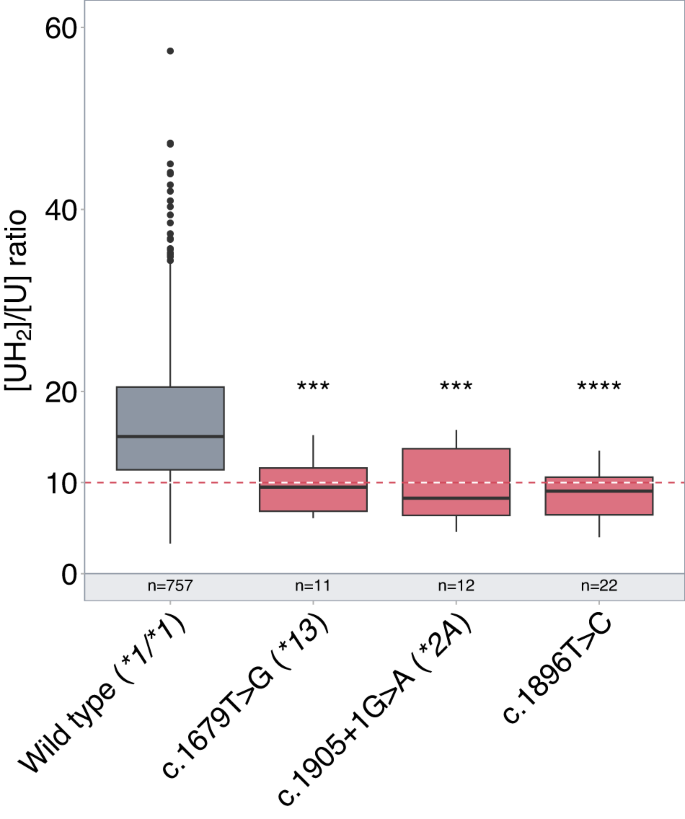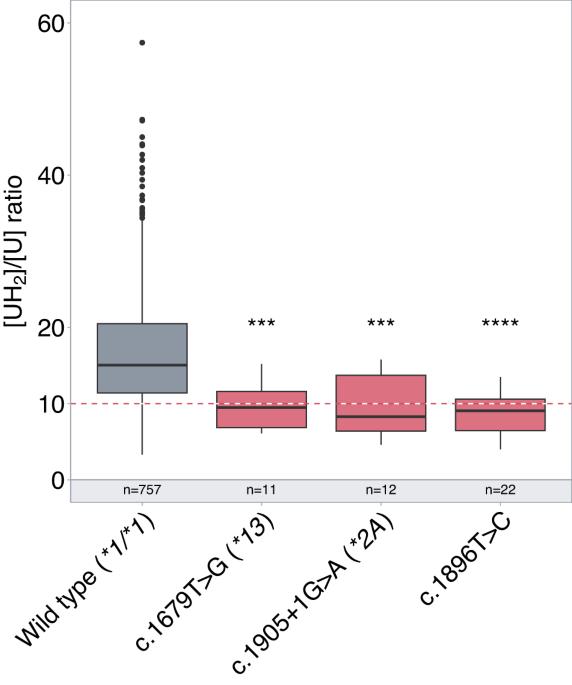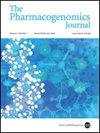将罕见基因变异纳入 DPYD 药物基因检测,可能有助于预防氟嘧啶引起的毒性。
IF 2.9
3区 医学
Q2 GENETICS & HEREDITY
引用次数: 0
摘要
涉及药物药代动力学或药物反应的基因变异可导致疗效不佳或易引起药物不良反应。除了常见的基因变异外,大规模的测序研究还发现了多种罕见的基因变异,预测这些变异会导致编码与药物代谢、转运和反应有关的蛋白质的基因发生功能性改变。为了了解 DPYD 罕见基因变异的功能重要性,对 DPYD 基因的外显子区和侧翼剪接接头进行了大规模平行测序,并使用二氢尿嘧啶/尿嘧啶([UH2]/[U])血浆比值作为 DPD 活性的替代标志物,对近 3000 名患者进行了分类,并根据先期 DPD 酶活性进行了分类。我们的研究结果凸显了将基于新一代测序的药物基因组学解释纳入临床决策的重要性,从而在不改变疗效的前提下最大限度地降低氟嘧啶类化疗的毒性。本文章由计算机程序翻译,如有差异,请以英文原文为准。


Integrating rare genetic variants into DPYD pharmacogenetic testing may help preventing fluoropyrimidine-induced toxicity
Variability in genes involved in drug pharmacokinetics or drug response can be responsible for suboptimal treatment efficacy or predispose to adverse drug reactions. In addition to common genetic variations, large-scale sequencing studies have uncovered multiple rare genetic variants predicted to cause functional alterations in genes encoding proteins implicated in drug metabolism, transport and response. To understand the functional importance of rare genetic variants in DPYD, a pharmacogene whose alterations can cause severe toxicity in patients exposed to fluoropyrimidine-based regimens, massively parallel sequencing of the exonic regions and flanking splice junctions of the DPYD gene was performed in a series of nearly 3000 patients categorized according to pre-emptive DPD enzyme activity using the dihydrouracil/uracil ([UH2]/[U]) plasma ratio as a surrogate marker of DPD activity. Our results underscore the importance of integrating next-generation sequencing-based pharmacogenomic interpretation into clinical decision making to minimize fluoropyrimidine-based chemotherapy toxicity without altering treatment efficacy.
求助全文
通过发布文献求助,成功后即可免费获取论文全文。
去求助
来源期刊

Pharmacogenomics Journal
医学-药学
CiteScore
7.20
自引率
0.00%
发文量
35
审稿时长
6-12 weeks
期刊介绍:
The Pharmacogenomics Journal is a print and electronic journal, which is dedicated to the rapid publication of original research on pharmacogenomics and its clinical applications.
Key areas of coverage include:
Personalized medicine
Effects of genetic variability on drug toxicity and efficacy
Identification and functional characterization of polymorphisms relevant to drug action
Pharmacodynamic and pharmacokinetic variations and drug efficacy
Integration of new developments in the genome project and proteomics into clinical medicine, pharmacology, and therapeutics
Clinical applications of genomic science
Identification of novel genomic targets for drug development
Potential benefits of pharmacogenomics.
 求助内容:
求助内容: 应助结果提醒方式:
应助结果提醒方式:


